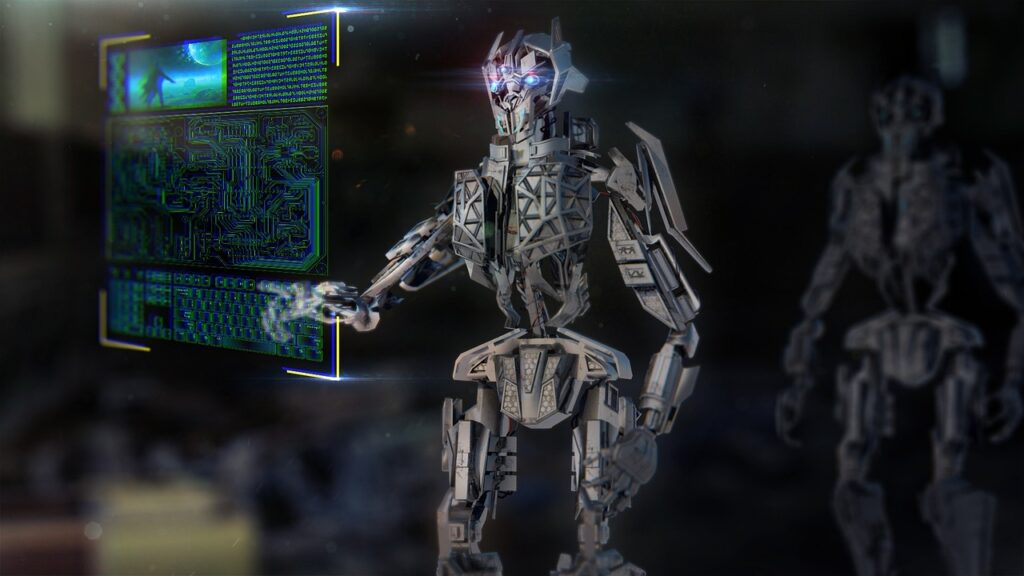Artificial Intelligence (AI) is no longer a futuristic concept; it is actively shaping the digital world in ways we could only imagine a decade ago. From transforming industries to redefining human interaction with technology, AI is at the forefront of digital innovation. In this article, we will explore the future of AI and its impact on various sectors, including business, healthcare, education, cybersecurity, and entertainment.
The Current Landscape of AI
AI has already revolutionized numerous industries. Machine learning algorithms enhance personalization, chatbots improve customer service, and automation increases efficiency across businesses. Companies like Google, Microsoft, and OpenAI are continuously advancing AI capabilities, making them more accessible to the general public and enterprises alike.
AI in Business and Automation
Businesses are leveraging AI to optimize operations, enhance decision-making, and improve customer experiences. AI-driven analytics help companies predict market trends, automate workflows, and provide data-driven insights. In the future, we can expect AI to replace repetitive tasks, allowing employees to focus on strategic, creative, and complex problem-solving activities.
AI in Healthcare
AI is transforming healthcare through predictive analytics, robotic surgery, and personalized medicine. With AI-powered diagnostics, doctors can detect diseases earlier and recommend tailored treatments. Wearable devices utilizing AI can monitor real-time health metrics, alerting patients and doctors about potential health risks. The future holds more advancements in AI-driven drug discovery and virtual healthcare consultations, making healthcare more accessible and efficient.
AI in Education
The education sector is experiencing a digital transformation, with AI playing a crucial role in personalized learning. Adaptive learning platforms use AI to tailor educational content to individual students’ needs. AI-powered chatbots assist students with queries, while virtual tutors provide 24/7 learning support. As AI continues to evolve, we can expect it to create more immersive and interactive learning experiences through augmented reality (AR) and virtual reality (VR).
AI in Cybersecurity
With the increasing number of cyber threats, AI is becoming an essential tool in cybersecurity. AI-driven security systems can detect and respond to cyber threats in real-time, reducing the risk of data breaches. Future AI advancements will further enhance threat prediction, allowing organizations to proactively address vulnerabilities before they are exploited.
AI in Entertainment and Creativity
The entertainment industry is embracing AI to create engaging content, from AI-generated music and artwork to deepfake technology in movies. Streaming services like Netflix and Spotify use AI to recommend personalized content. AI is also being used in video game development, enhancing gameplay experiences through intelligent non-player characters (NPCs) and realistic environments. As AI advances, we can expect even more creative applications, such as AI-generated storytelling and virtual influencers.
Ethical Considerations and Challenges
Despite its benefits, AI presents challenges, including ethical concerns, job displacement, and biases in algorithms. It is crucial to implement responsible AI practices, ensuring transparency, fairness, and accountability. Governments and organizations must work together to create regulations that promote the ethical use of AI while maximizing its potential for positive impact.
The Road Ahead
The future of AI is promising, with continuous advancements set to revolutionize industries and improve daily life. As AI systems become more intelligent and sophisticated, they will unlock new possibilities, from autonomous transportation to AI-driven scientific discoveries. However, balancing innovation with ethical responsibility will be key to harnessing AI’s full potential.
READ MORE: Your Cyber Mate
Conclusion
AI is not just a technological trend; it is a transformative force reshaping the digital world. With ongoing developments, AI will continue to influence industries, improve efficiency, and enhance human experiences. As we move forward, embracing AI responsibly will be essential in shaping a future where technology and humanity coexist harmoniously.
